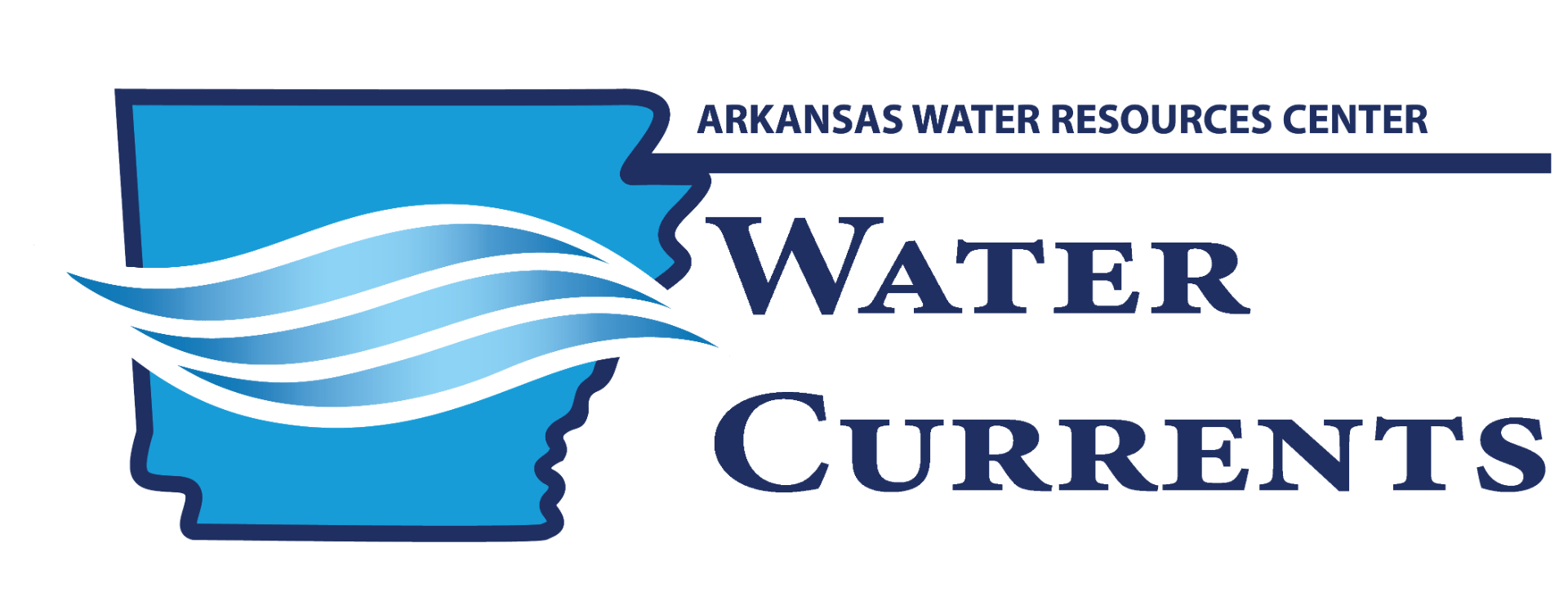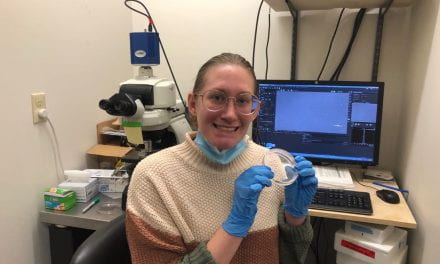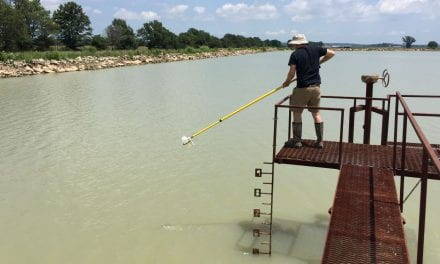
From the U of A, 8,000 Miles Away: Zach Simpson Studies Phosphorus in New Zealand Streams
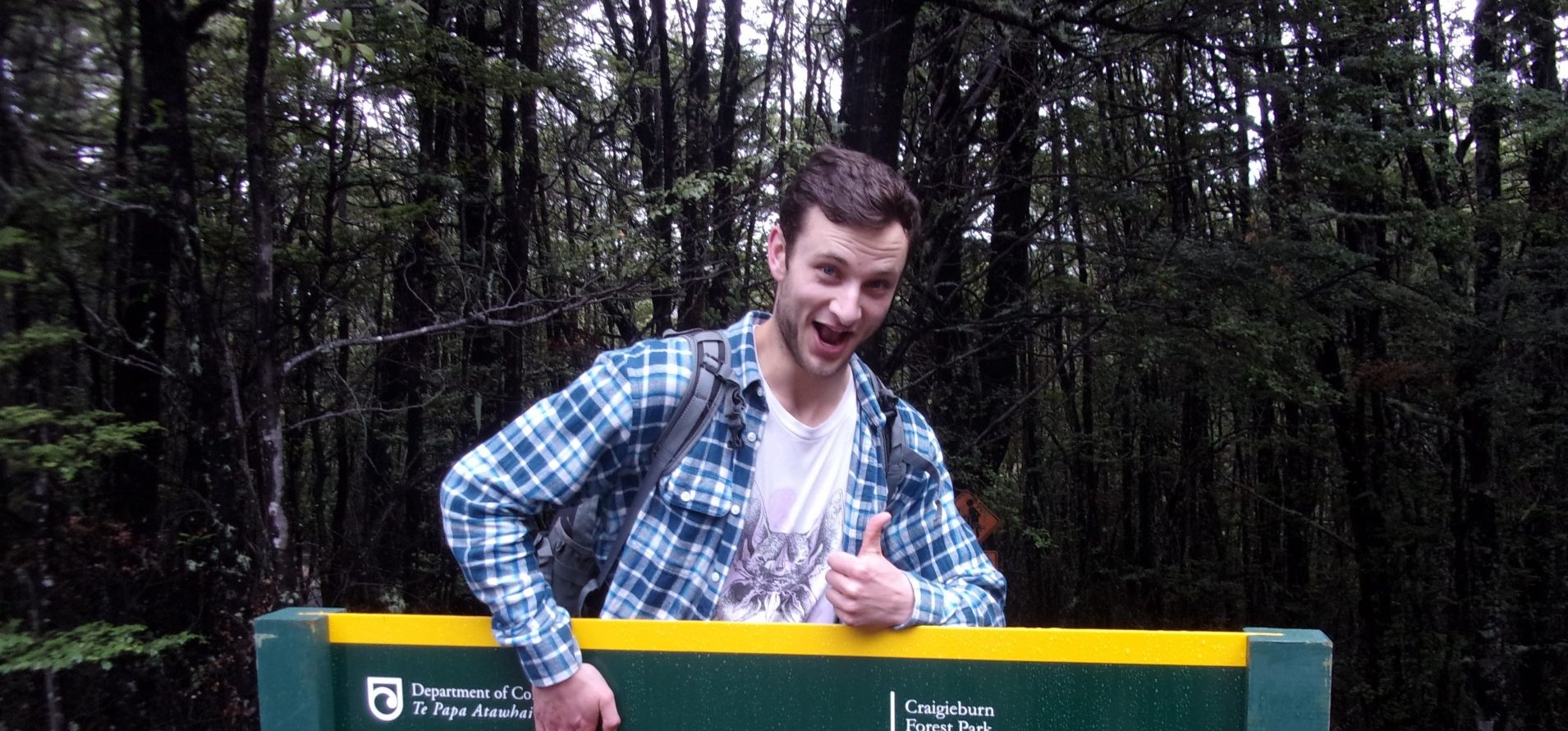
A Where are They Now? Piece
Zach Simpson received his bachelor’s and master’s degrees from the University of Arkansas – Fayetteville in the department of biological engineering. As a graduate student, he studied under Brian Haggard, on the topic of water quality in two important watersheds in northwest Arkansas – the Illinois River and the White River watersheds.
His focus was on water quality trends, or how water quality was changing over time, and between base- and storm-flows. He also became a master of R, a statistical program, where he developed his own statistical codes to improve the methodology of trend analysis. Or, as he describes it, he spent his time learning statistical witchcraft.
Now Zach is continuing his studies as a PhD student at Lincoln University in Canterbury, New Zealand.
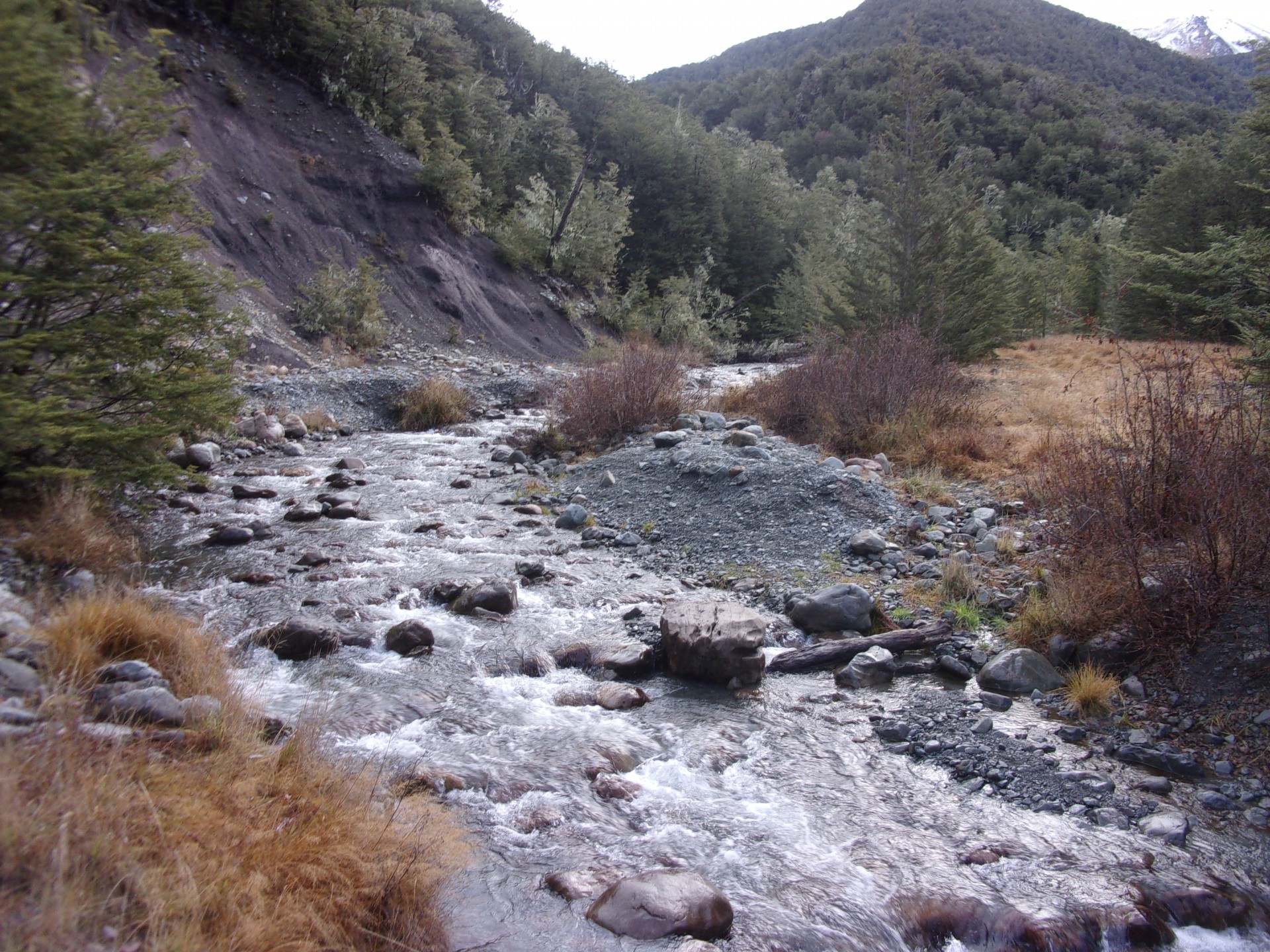
New Zealand mountain stream.
Zach, what’s the focus of your study in New Zealand?
Like everywhere else in the world, New Zealand streams are at risk because of nutrient pollution. When there’s a lot of phosphorus in the streams, there’s a good chance of seeing excessive algal growth. I’m studying how stream sediments might influence phosphorus transport in streams.
Many students don’t know what their next step is; how did you find yourself studying in New Zealand?
I might not be the best person to ask about career trajectory; also, anyone who knows their exact trajectory in life scares me. No, I’m kidding, but I really didn’t know what I was going to do until I did it; I mean, I didn’t plan to study in New Zealand, it just kind of happened.
As I was finishing my master’s, I decided I really enjoyed research and found environmental science to be fascinating. Dr. Haggard, my advisor at the U of A, put me in touch with a colleague, Dr. Rich McDowell, who was looking for PhD students. I was already familiar with some of Dr. McDowell’s work, and our shared research interests made for a good fit.
What’s one of the most important things you learned during your master’s that’s helped you succeed so far?
Learning to always be critical of the work I was doing has really helped me. Science is only as credible as the experimental design, hypothesis, methods, analysis, and interpretation that goes into it. I’m always improving my critical thinking, and my thesis committee really helped me develop that skill. I still think of Dr. Thad Scott saying to me, “yeah, but what assumptions are you making?”
What’s the biggest challenge for you as a PhD student?
The lab work is probably the biggest challenge right now. I do a lot of sediment-phosphorus analyses, which already come with several potential pitfalls; then combine that with the fact that samples add up quickly. It’s easy to get overwhelmed by sample tubes, reagents, extractions. But I’m lucky to have people around me willing to help out (shout out to Gustavo Boitt).
What are the people like who you work with?
The people are awesome! My department is a homely, yet buzzing place, much like bio and ag engineering back at the U of A. It’s comforting to have a tight knit community of people to work with.
Most of the department is international students, with probably 20 different countries represented. I share an office with a couple people from Uruguay and Brazil; we get along famously, and they even started me on drinking yerba mate.
People are doing all sorts of research in biogeochemistry, water resources, agricultural management, and a lot of other topics as well. It’s neat to learn what everyone is studying. We work in a large, shared lab space, so I get to bug people about what they’re doing with weird boxes of plants and wacky instruments.
What stands out the most about working in New Zealand?
Definitely the stunning landscapes while doing field work. I helped my office mate do some soil sampling in south Canterbury and our view of the Southern Alps was amazing. Makes for happy digging.
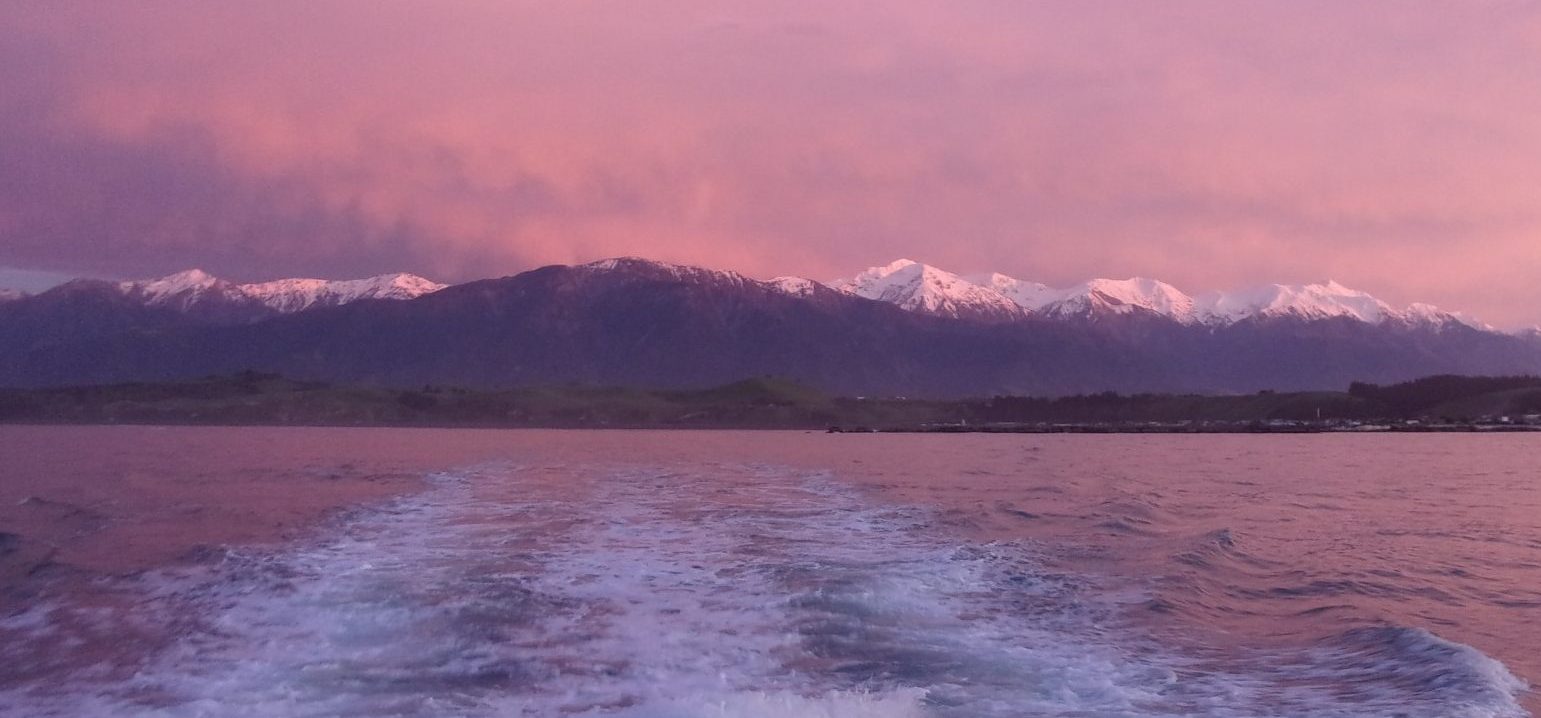
Beautiful view of the Southern Alps in New Zealand.
What’s the public’s perception of water issues, and how does policy compare with the US?
It’s really interesting and surprising how engaged the community is. Water quality is a big news topic, especially about nitrate concentrations, sediment loading, and bacteria.
I’m still learning about how policy works here. There’s a national level, like the US Environmental Protection Agency, and state level regulations. Nutrient limits are pretty strict, maybe even going so far as to limit farm-level nitrogen loads in some parts of the country.
What do you want to do after your PhD?
Keep doing research, hopefully! I don’t know where or what exactly, but I have a few more years to figure that out. I feel at ease knowing that hydrology and water quality work will always be in demand everywhere in the world.
Is there anything else that people might find interesting about you or the research you’re doing?
Actually, yeah. I saw something incredible last week while out in the country.
A sheep farmer was rounding up his sheep with the help of his talking sheep dog. The dog herded the sheep into the pin and barked, “All 40 sheep accounted for!”
The farmer said, “Wait, 40 sheep?! I only have 36 sheep, you know that!”
The dog said, “I know, but I rounded them up!”
